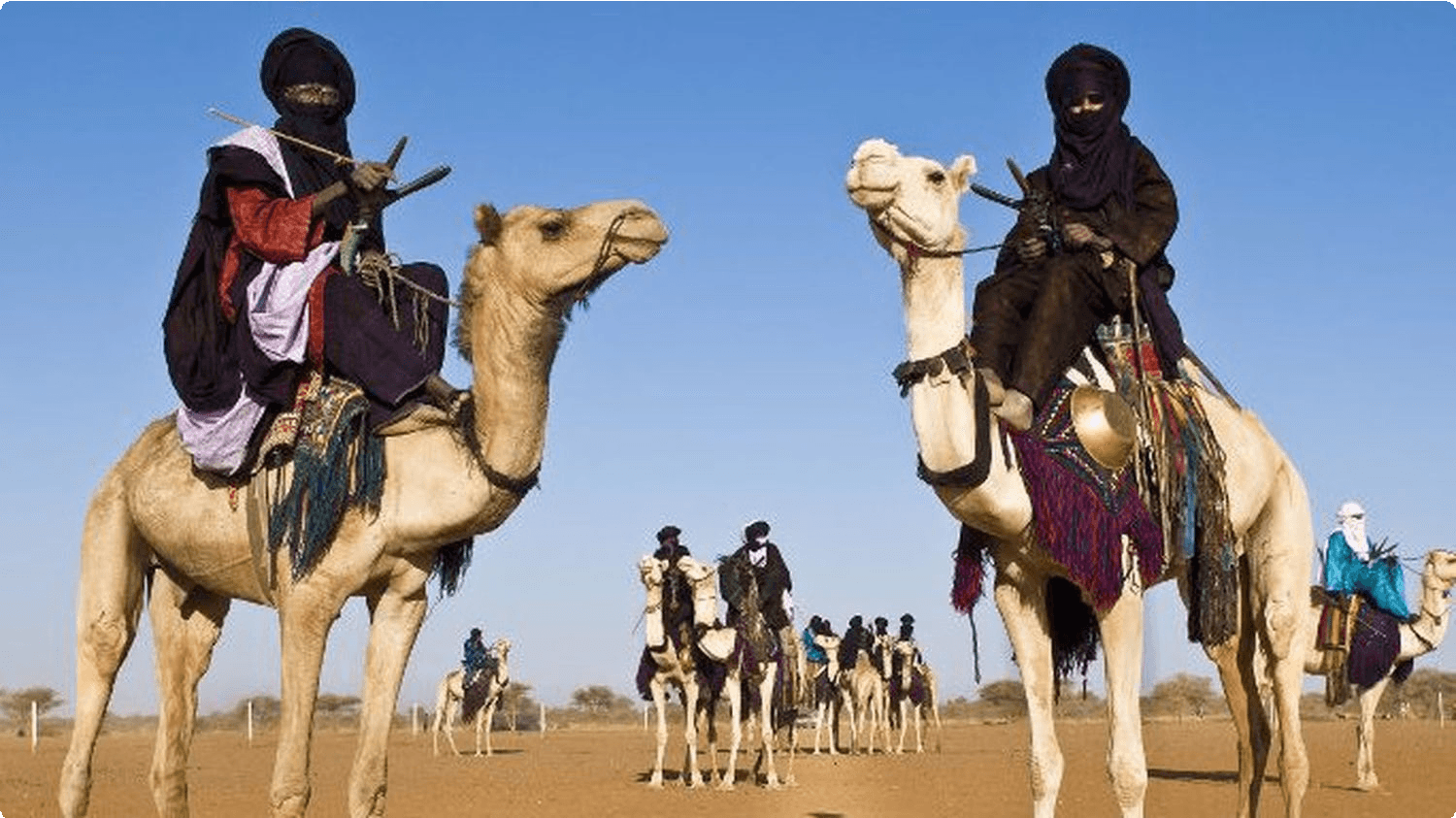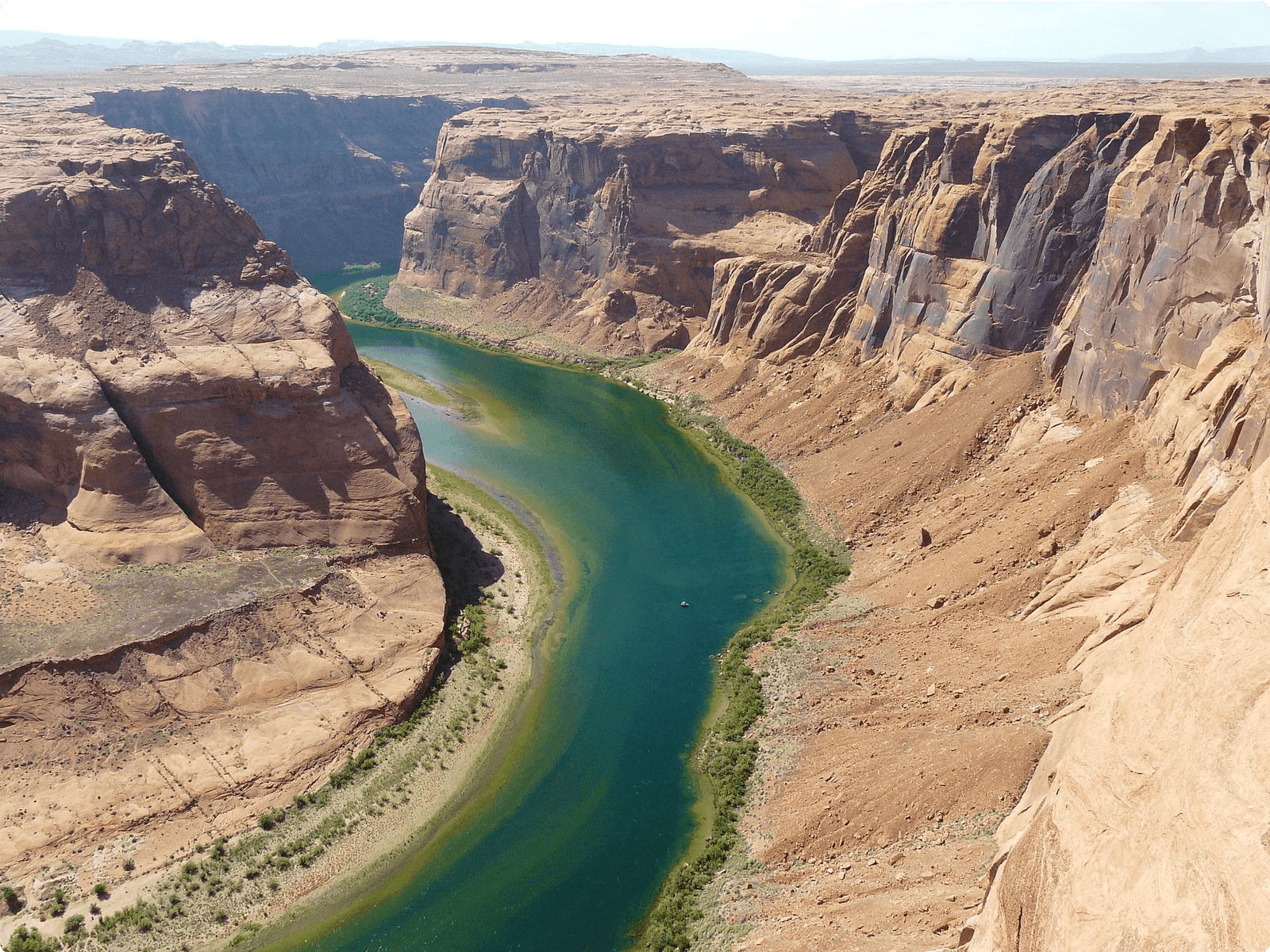Niger
Discover Niger
Niger, officially the Republic of Niger, is a landlocked country located in West Africa. It is bordered by Libya to the northeast, Chad to the east, Nigeria to the south, Benin to the southwest, Burkina Faso and Mali to the west, and Algeria to the northwest. With a rich history dating back to ancient civilizations, Niger boasts a diverse culture, vibrant traditions, and breathtaking landscapes.

The country is known for its captivating dance forms, flavorful cuisine, and warm hospitality. From the majestic dunes of the Sahara desert to the lush landscapes of the Niger River, the natural beauty of Niger is truly awe-inspiring. This extraordinary destination offers a unique blend of adventure, history, and culture, making it a must-visit for travelers seeking an authentic African experience.
Flag of Niger
The flag of Niger features three horizontal stripes. The top stripe is orange in color, symbolizing the Sahara Desert in the north of the country. Below it is a white stripe, representing purity and innocence, and the peace and integrity of the people. The bottom stripe is green, symbolizing hope and the fertile soil. In the center of the flag, there is an orange circle, which represents the sun and signifies independence. The flag was officially adopted in 1959 and has remained an important symbol of the nation’s identity.

Geography and Map of Niger
Niger, officially known as the Republic of Niger, is a landlocked country located in West Africa. It is bordered by Libya to the northeast, Chad to the east, Nigeria to the south, Benin to the southwest, Burkina Faso and Mali to the west, and Algeria to the northwest. The capital city, Niamey, is situated along the Niger River, which is the namesake of the country.

The geography of Niger is dominated by the vast expanse of the Sahara Desert in the north, while the southern region features savanna and agricultural lands. The country is also home to various noteworthy geographical features such as the rugged beauty of the Air Mountains and the striking landscapes of the Ténéré Desert.
One of the most prominent geographical landmarks of Niger is the legendary city of Agadez, an
important center of trans-Saharan trade and home to a remarkable mud-brick mosque, a UNESCO World Heritage site. The diverse and captivating geography of Niger makes it a fascinating destination for nature enthusiasts and adventurers alike.
Currency of Niger
The official currency of Niger is the West African CFA franc, denoted as XOF. It is the currency used by several West African countries and is tied to the euro at a fixed exchange rate. The CFA franc is issued by the Central Bank of West African States (BCEAO) and the Bank of Central African States (BEAC).
Owing to its stability and the backing of the French treasury, the CFA franc has been a reliable currency for trade and commerce within the region.

Banknotes in circulation range from 500 to 10,000 francs, with each denomination depicting iconic landmarks, cultural symbols, and influential figures from Niger’s history. The coins are available in various denominations and are a vibrant representation of the country’s heritage and natural resources.
The currency plays a significant role in shaping the economic landscape of Niger and is vital for both domestic and international transactions. While the use of digital payment methods is growing, the CFA franc remains the cornerstone of financial transactions in the country.
Economy of Niger
Primary Economic Activities: Niger’s economy is primarily based on agriculture, including livestock farming, subsistence farming, and some cash crops like cowpeas and onions.
Mining Industry: The country is a significant producer of uranium, which is a major export. Additionally, there are reserves of coal, iron ore, tin, and gold contributing to the mining sector.
Challenges and Opportunities: Despite its natural resources, Niger faces challenges such as a widespread lack of infrastructure, healthcare, and education. However, the government is working towards improving these areas to stimulate economic development and attract foreign investment.
Culture of Niger
Niger has a rich and diverse culture, influenced by the various ethnic groups that call the country home. One of the most prominent aspects of Nigerien culture is the vibrant and colorful traditional attire worn by the people. The clothing often reflects the cultural identity of different tribes and is an important symbol of pride and heritage.
The art and craft traditions in Niger are also noteworthy, including intricate wood carvings, leatherwork, and beautiful jewelry. These crafts are often passed down through generations, preserving the cultural heritage and traditions of the various communities.
Music and dance play a crucial role in Nigerien culture, with traditional drumming, energetic dances, and soulful melodies contributing to the country’s rich artistic landscape. The annual Cure Salée festival in the Agadez region is a vibrant celebration of Nigerien culture, featuring traditional music, dance, and storytelling.
Nigerien cuisine is another integral part of the cultural experience, characterized by flavorful dishes such as Fari masa, a popular street food, and Jollof rice, a staple at celebrations and gatherings. Food brings people together, and in Niger, it offers a glimpse into the country’s diverse culinary traditions.
Traditional Dances in Niger
Diverse Rhythms
Niger is home to a rich tapestry of traditional dances, each with its own unique rhythms and movements. From the energetic Sabre dance, performed by the Tuareg people, to the graceful Hausa and Zarma dances, the traditional dances of Niger showcase the country’s cultural diversity and history.
Colorful Costumes
Traditional dance performances in Niger are often accompanied by vibrant and elaborate costumes, adorned with bright colors, intricate patterns, and symbolic designs. The fusion of music and artistry in these performances creates a visually stunning and captivating experience for both participants and spectators.
Famous Nigerien Dishes
Jollof Rice
Jollof rice is a popular and flavorful dish made with rice, tomatoes, onions, and a blend of spices. It is often cooked with chicken, fish, or vegetables, resulting in a colorful and aromatic one-pot meal that is a staple in Nigerien cuisine. The dish is often served at celebrations and special occasions, and its rich, savory flavors are loved by locals and visitors alike.

Fufu and Soup
Fufu is a starchy side dish made from cassava, yams, or plantains, and is commonly paired with a hearty and flavorful soup. The soup can be prepared with a variety of ingredients, such as okra, spinach, or melon seeds, and often includes meat or fish. Fufu and soup are a classic combination in Nigerien cuisine, offering a satisfying and comforting meal enjoyed by many.

Brochettes
Brochettes are skewers of tender, marinated meat, typically beef, goat, or chicken, grilled to perfection. They are often seasoned with a blend of spices and served with a side of fresh vegetables or a spicy dipping sauce. Brochettes are a beloved street food in Niger, known for their succulent and smoky flavors that make them a popular choice for a quick and delicious meal.

Nigerien Music and Artists
Traditional Music Heritage
Nigerien music is deeply rooted in tradition, with diverse ethnic groups showcasing their unique musical styles. From the haunting melodies of Tuareg desert blues to the rhythmic beats of Hausa musical traditions, the music of Niger reflects the country’s rich cultural tapestry, passed down through generations.
Modern Musical Innovation
Contemporary Nigerien musicians are pushing boundaries and exploring new sounds, blending
traditional rhythms with modern influences. From Afrobeat to hip-hop, these artists are creating a vibrant musical landscape that resonates with both local and global audiences, showcasing the creativity and innovation of Nigerien musical talent.
Nigerien Literature and Writers
Chimamanda Ngozi Adichie
Chimamanda Ngozi Adichie, a prominent Nigerian writer, is known for her bestselling novels “Half of a Yellow Sun” and “Americanah”. Her captivating storytelling and exploration of cultural and social issues have earned her international acclaim and numerous literary awards.
Wole Soyinka
Wole Soyinka, a Nobel Prize-winning Nigerian playwright and poet, is celebrated for his powerful works that address themes of oppression, freedom, and human dignity. His impact on African literature and his fearless activism have left a lasting mark on the literary world.
Chinua Achebe
Chinua Achebe, often referred to as the “father of African literature”, is best known for his novel “Things Fall Apart”. His insightful depictions of Nigerian culture and his critique of colonialism have solidified his place as one of the most influential writers in African literature.
Nigerien Film Industry
Talented Filmmakers
Nigerien film industry boasts a pool of talented and visionary filmmakers who have gained international recognition for their unique storytelling and distinct visual style. Directors such as Rahmatou Keïta and Moustapha Alassane have made significant contributions to the development of African cinema and continue to inspire a new generation of filmmakers.
Cultural Representation
Nigerien films often portray the rich cultural heritage and societal issues of the country, providing a platform for local stories to reach a global audience. The annual Niamey International Film Festival serves as a meeting point for filmmakers, artists, and cinema enthusiasts, promoting cultural exchange and showcasing the diversity of Nigerien cinema.
Traditional Clothing in Niger
Nigerien traditional clothing reflects the vibrant and diverse cultural heritage of the country. The clothing varies by region, community, and occasion, with each piece intricately designed and often adorned with colorful patterns and embroidery. One of the most iconic traditional garments for men is the “boubou,” a loose-fitting robe often made from brightly colored fabric. Women’s traditional clothing includes the “boubou kaftan,” a long, flowing dress with elaborate embellishments. The use of locally sourced textiles and traditional dyeing techniques adds a unique touch to each garment.

Signifying cultural pride and identity, traditional clothing in Niger is worn during religious ceremonies, weddings, and other significant events. It not only serves as a form of self-expression but also carries deep historical and social significance. Each piece of clothing tells a story of the rich cultural tapestry of Niger, making it an integral part of the country’s heritage.
Nigerien Festivals and Celebrations
Agadez Festival
The Agadez Festival is a vibrant celebration of Tuareg culture in Niger. It features traditional music, dance, and camel racing, and provides an opportunity for the Tuareg community to showcase their rich heritage to locals and visitors alike. The festival also includes colorful parades and displays of traditional crafts, making it a must-visit event for anyone interested in experiencing Nigerien culture.

Goudel Festival
The Goudel Festival, held in Niamey, celebrates Niger’s independence with a display of national pride. The festival includes street parades, musical performances, and traditional dancing. Visitors can enjoy traditional cuisine and witness cultural exhibitions, making it an excellent opportunity to immerse in the diverse heritage of Nigerien people.

The Cure Salée
The Cure Salée, or Salt Cure Festival, is an annual cultural gathering of the pastoral Wodaabe and Tuareg people. It’s a time for feasting, camel and horse races, and traditional dances. The festival provides a unique opportunity to witness the rich heritage and customs of the nomadic communities in Niger.

Religion in Niger
Islamic Influence: Islam is the dominant religion in Niger, practiced by the majority of the population. The Islamic influence can be seen in various aspects of daily life, from the architecture of mosques to the observance of religious festivals.
Traditional Beliefs: Alongside Islam, traditional African religions also hold significance for many Nigeriens. These beliefs often involve a deep connection to nature and ancestral worship, contributing to the rich cultural tapestry of the country.
Christian Minority: While a minority, Christianity has a presence in Niger, particularly in urban areas. The coexistence of different religious traditions reflects the country’s diversity and spirit of tolerance.
Languages Spoken in Niger
Hausa: It is the most widely spoken language in Niger and serves as a lingua franca for the country’s diverse ethnic groups. It is also one of the largest languages in Africa, spoken by millions of people.
Zarma: This language is predominantly spoken by the Zarma people in Niger, particularly in the regions of Dosso and Tillabéri. It is known for its unique tonal qualities.
Tamasheq: Also known as Tuareg, Tamasheq is spoken by the Tuareg people in the northern parts of Niger. It has distinct dialects and is an important part of Niger’s cultural heritage.
French: As a former French colony, French is an official language in Niger and is widely used in government, education, and media. Many Nigeriens are multilingual, with French being a common second language.
Education System in Niger
The education system in Niger faces significant challenges, with limited resources and infrastructure, particularly in rural areas. Primary education is officially free and compulsory, but access to quality education remains a concern. Many children, especially girls, do not have the opportunity to attend school due to poverty and cultural barriers. The literacy rate in Niger is among the lowest in the world, with disparities between urban and rural areas. Efforts to improve education include the building of more schools, training of teachers, and initiatives to promote girls’ education. The curriculum focuses on subjects like mathematics, science, languages, and social studies. However, the quality of education can vary widely, and there is a need for more qualified teachers and updated learning materials. At the
tertiary level, Niger has a few universities and technical colleges, providing opportunities for higher education in fields such as engineering, agriculture, and social sciences. Overall, while strides have been made in expanding access to education, there is still much work to be done to ensure that all children have the opportunity to receive a quality education in Niger.
Healthcare System in Niger
Niger faces significant challenges in its healthcare system, with limited access to quality medical care, especially in rural areas. The country has a shortage of healthcare facilities, medical professionals, and essential medical supplies. This inadequacy has led to high infant and maternal mortality rates, as well as an increased risk of communicable diseases.
The government has made efforts to improve healthcare by implementing initiatives to increase access to healthcare services, particularly for vulnerable populations. However, the healthcare infrastructure still requires substantial development to meet the needs of the population. Additionally, traditional medicine plays a significant role in addressing healthcare needs, especially in remote areas.
Non-governmental organizations and international aid have also been instrumental in providing healthcare support, including vaccination campaigns, maternal and child health programs, and disease prevention efforts. Despite these efforts, ongoing challenges persist, making the improvement of the healthcare system a crucial priority in Niger.
Transportation in Niger
Roads: Niger has an extensive road network, with the main highways connecting the major cities. However, rural areas may have unpaved and rough roads, requiring sturdy vehicles for travel.
Rail: The country has a railway system, operated by the Nigerien National Railway Company (SONINRA). The rail network mainly serves the transportation of goods and minerals.
Public Transport: In urban areas, public transport is common, with minibuses and taxis being the primary modes of commuting. However, intercity travel often relies on privately-owned vehicles.
Air Travel: Domestic flights are available, connecting the major cities and towns. The Diori Hamani International Airport in Niamey serves as the main gateway for international travel.

Famous Nigerien Celebrities
Oumarou Ganda
Oumarou Ganda was a celebrated Nigerien actor and filmmaker. He dedicated his life to promoting African cinema and is best known for his influential contributions to the film industry in Niger.

Mamane
Mamane is a popular Nigerien comedian and actor, known for his sharp wit and humorous commentary on social and political issues. His comedic performances have entertained audiences across Niger and beyond.

Best Cities to Visit in Niger
Niamey: The capital and largest city of Niger, Niamey is situated on the banks of the Niger River and is known for its vibrant markets, cultural centers, and the striking Grand Mosque.
Agadez: This ancient city is a UNESCO World Heritage site, featuring traditional mud-brick architecture, bustling markets, and serving as a gateway to the breathtaking Sahara desert.
Zinder: Known for its rich history and traditional Hausa architecture, Zinder is a city where visitors can explore historic landmarks, colorful markets, and experience the local culture.
Top Tourist Attractions in Niger
Agadez Mosque
The Agadez Mosque, also known as the Great Mosque of Agadez, is a stunning example of Sahelian architecture and a UNESCO World Heritage Site. The mosque’s unique design and impressive minaret are a must-see for visitors to Niger.

W National Park
W National Park is one of the most important natural reserves in West Africa, featuring a diverse array of wildlife and picturesque landscapes. Visitors can spot elephants, lions, and a variety of bird species in this beautiful park.
Air Mountains
The Air Mountains offer breathtaking scenery, including dramatic rock formations and ancient rock art. This region is ideal for trekking and experiencing the traditional Tuareg way of life in picturesque villages.
Sultan’s Palace, Zinder
The Sultan’s Palace, located in the city of Zinder, is a historical architectural gem that provides insight into Niger’s royal history. Visitors can explore the palace’s courtyards, intricate design, and exhibits showcasing local culture and traditions.

Natural Wonders of Niger
Ténéré Desert
The Ténéré Desert, located in southeastern Niger, is known for its vast expanse of sand dunes and spectacular rock formations. This stunning natural wonder is often referred to as the “land of thirst” and is one of the most arid regions in the Sahara Desert. The unique landscapes and the play of light and shadow make it a photographer’s paradise and a truly awe-inspiring sight for visitors.

W-Arching Rock Formation
The W-arching rock formation is a natural wonder that captivates all who witness it. This exceptional geological formation is located in the heart of the Sahara Desert and is characterized by its impressive natural arch carved out of sandstone. The arch, known as the W-arching rock, stands as a testament to the raw power of nature and attracts adventurers and nature enthusiasts from around the world.
Takara Gorge
Takara Gorge is a breathtaking natural wonder, carved over millennia by the meandering flow of the River Niger. The sheer cliffs and narrow winding paths present a striking backdrop, and the verdant flora surrounding the gorge is an oasis of life in the midst of the arid landscape. The gorge offers a sense of tranquility and beauty that is truly unmatched, making it a must-visit destination for nature lovers.

Historical Sites in Niger
Agadez Mosque
The Agadez Mosque, also known as the Great Mosque of Agadez, is a prominent historical site in Niger. This magnificent mud-brick structure is a testament to the rich architectural heritage of the region and has been an important center of Islamic culture and learning for centuries.
Sultan’s Palace, Zinder
The Sultan’s Palace in Zinder is a captivating historical site that offers a glimpse into the royal history of Niger. With its intricate design and captivating architecture, the palace stands as a symbol of the country’s traditional leadership and authority.
Koure Giraffe Reserve
The Koure Giraffe Reserve is not only a natural wonder but also a site of historical significance. With a population of West African giraffes, this reserve provides a unique opportunity to witness these majestic creatures in their natural habitat, making it a must-visit historical and natural site in Niger.
The Old City of Zinder
The Old City of Zinder is a treasure trove of historical and cultural landmarks, including ancient architecture, traditional markets, and historical monuments that offer an immersive experience into the rich heritage of Niger.
Adventure Activities in Niger
Sahara Desert Camel Trekking
Embark on a mesmerizing Sahara Desert camel trek, where you can experience the vast expanse of golden sand dunes and the utter silence of the desert. Traverse through the breathtaking landscapes while immersing yourself in the traditional nomadic lifestyle of the Tuareg people.
Ténéré Desert Rock Climbing
For the adventure enthusiasts, the Ténéré Desert offers an unparalleled rock climbing experience. Scale rugged cliffs and boulders in this remote and fascinating desert, and embrace the thrill of conquering the unique geological formations.
Niger River Kayaking
Embark on a kayaking expedition on the Niger River, meandering through serene and picturesque landscapes. Immerse yourself in the captivating flora and fauna as you paddle your way along the gentle currents of the river.

Biking in Termit Massif
Discover the Termit Massif region on an exhilarating biking adventure, where you can explore the unique rock formations and valleys while witnessing the diverse wildlife that inhabits this rugged terrain.
Conclusion and Summary
As we conclude our exploration of Niger, it becomes evident that this West African nation is a land of rich cultural heritage, diverse traditions, and natural beauty. From the vibrant colors of the traditional clothing to the rhythmic beats of the traditional dances, Niger encapsulates a world of wonders. The sumptuous flavors of Nigerien dishes, the melodic tunes of its music, and the captivating narratives of its literature and film industry all contribute to the colorful tapestry that is Niger.

Furthermore, with its impressive historical sites, stunning natural wonders, and a thriving contemporary art scene, Niger offers a truly unmissable experience. As we take in the majestic views of its landscapes and immerse ourselves in the warmth of its people, it’s clear that Niger is a destination worth exploring. In this summary, we celebrate the alluring mosaic that is Niger and envision the unforgettable experiences that await those who choose to traverse this extraordinary land.